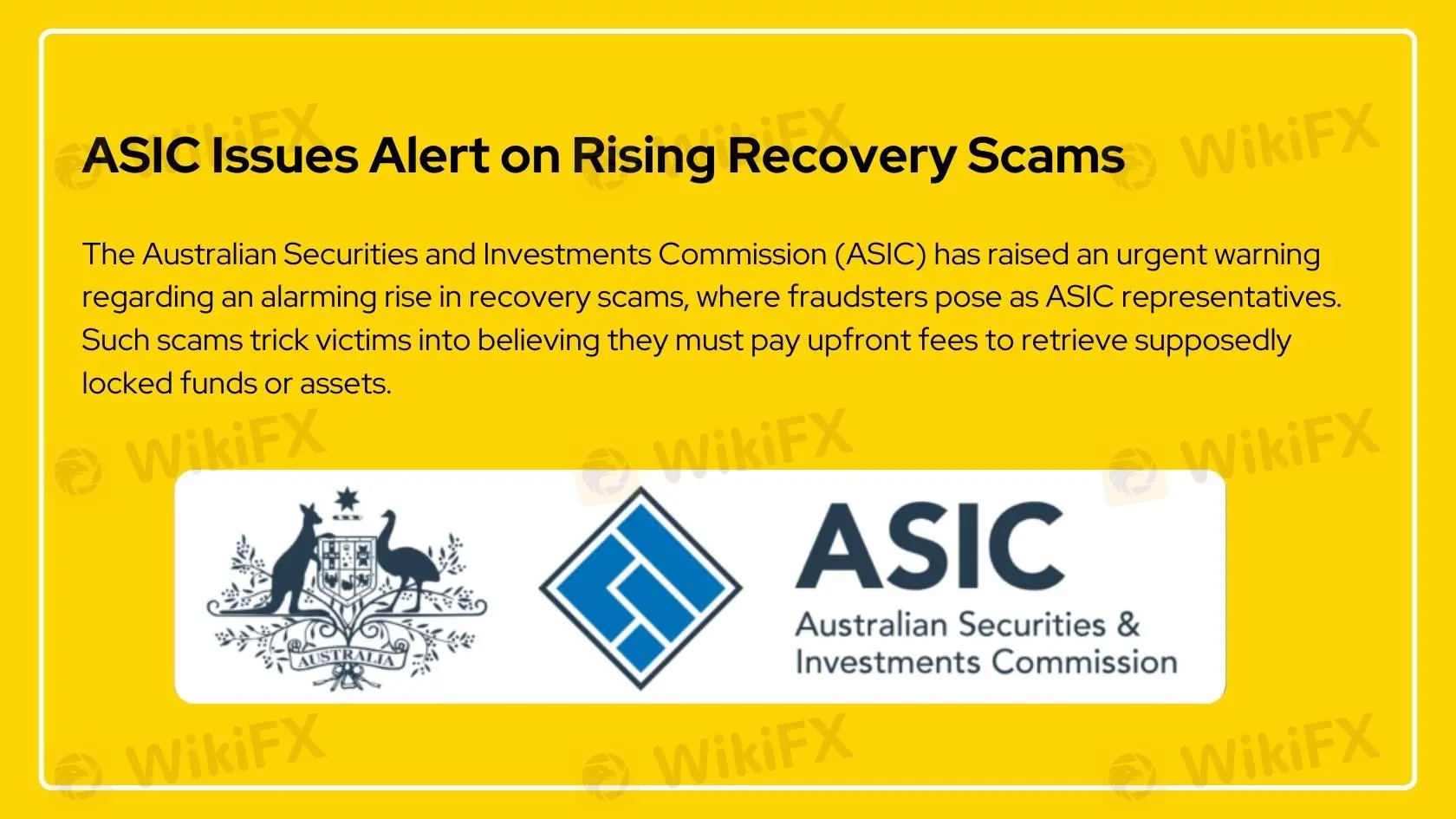ASIC Issues Alert on Rising Recovery Scams
Abstract:The Australian Securities and Investments Commission (ASIC) has raised an urgent warning regarding an alarming rise in recovery scams, where fraudsters pose as ASIC representatives. Such scams trick victims into believing they must pay upfront fees to retrieve supposedly locked funds or assets.

Fraudulent Impersonation of ASIC
Scammers typically initiate contact via email, text messages, or phone calls, pretending to be from ASIC. In recent cases, scammers have specifically requested payments in US dollars to purportedly enable the release of investor funds. ASIC strongly clarifies it never charges fees for releasing assets or funds under any circumstances.
Recovery scams are particularly harmful because they target individuals already impacted by previous scams, exploiting their desperation to recover lost funds. ASIC emphasizes that investors should remain skeptical of anyone promising fund recovery in exchange for fees.
Recognizing and Avoiding Recovery Scams
ASIC emphasizes several key points to help investors spot these scams:
• No Payments Required: ASIC never demands payment in any currency—traditional or digital—including cryptocurrencies or stablecoins, to release locked funds or assets.
• Verifying Legitimacy: All official ASIC communications originate exclusively from email addresses ending in “@asic.gov.au”, and phone calls will only come from Australian numbers (country code +61).
• Unauthorized Use of ASIC Logo: Third-party entities are prohibited from using ASICs logo or claiming endorsement of services.
How to Respond if Contacted by Scammers
If you receive unsolicited communications claiming to be from ASIC:
• Immediately terminate the call or stop replying to emails or texts.
• Independently verify the contact by calling ASICs official number .
• Report suspicious activities to ASIC and Scamwatch.
Read more

Pi Network: Scam Allegations Spark Heated Debate
A whistleblower report has surfaced, casting doubt on the legitimacy of Pi Network, alleging psychological manipulation, opaque operations, and potential financial exploitation. What is your take on this?

PayPal Account Holders Warned of Surge in Scams
Experts warn of increased PayPal scams, including fake emails and gift cards. Stay alert to protect your account from cybercriminals.

UN Warns Asian Scam Operations are Spreading Worldwide
UN report reveals Asian scam operations expanding globally, targeting Africa, Latin America with cyberfraud, generating billions amid crackdowns.

South Africa's Regulator Warns of WhatsApp Scam Impersonation with 30% Returns
New deepfake scam in South Africa uses fake FSCA video to promote fraudulent AI trading schemes. Public warned about unauthorized financial schemes.
WikiFX Broker
Latest News
Love, Investment & Lies: Online Date Turned into a RM103,000 Scam
Broker Took 10% of User's Profits – New Way to Swindle You? Beware!
Pi Network: Scam Allegations Spark Heated Debate
Broker Comparsion: FXTM vs AvaTrade
Account Deleted, Funds Gone: A New Broker Tactic to Beware Of?
Broker’s Promise Turns to Loss – Funds Disappear, No Compensation!
StoneX Subsidiary, Gain Global Markets Bermuda, Penalized for Trading Misconduct
El Salvador and U.S. Launch Cross-Border Crypto Regulatory Sandbox
The Instagram Promise That Stole RM33,000
Coinbase Launches Bitcoin Yield Fund for Institutional Investors
Rate Calc
